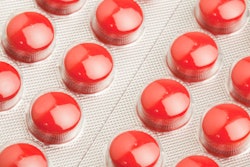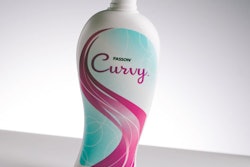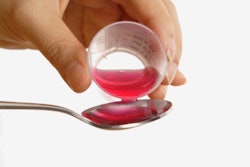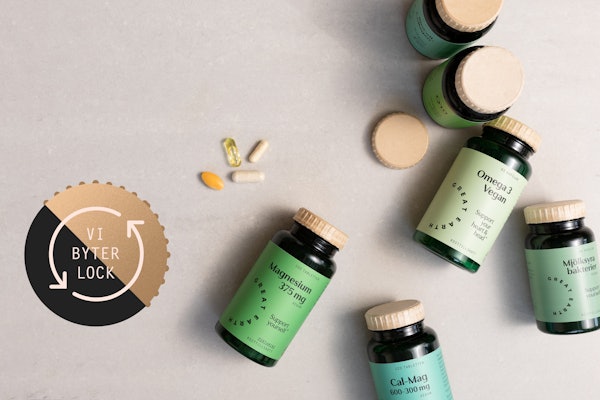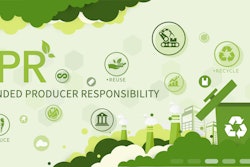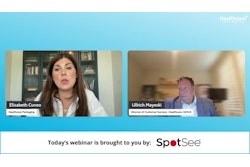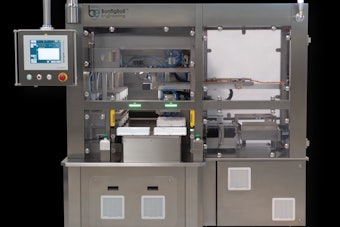This content was written and submitted by the supplier. It has only been modified to comply with this publication’s space and style.
More than 200,000 people in Africa and Asia will have access to improved health care and water, and increased access to jobs, through commitments made by Pfizer, Vodafone, Sproxil and WaterHealth International to the Business Call to Action - a global leadership initiative made up of companies that apply their core business expertise to the achievement of the eight internationally-agreed Millennium Development Goals (MDGs) by promoting sustainable solutions to development.
“With five years left to MDG achievement, it is important that business plays its part in contributing in a meaningful and impactful way to the long-term economic growth and stability of developing countries,” said Programme Manager of the Business Call to Action Natalie Africa. “These innovative projects are providing essential services related to water and healthcare, demonstrating the difference that can be made through putting new technologies including mobile phones to use for development purposes.”
In New York on Tuesday, Ponni Subbiah, MD, MPH, Vice President, Pfizer Global Access, announced a joint commitment on behalf of the pharmaceutical company and Vodafone, in collaboration with the Ministry of Health and Social Welfare in The Gambia and International Health Partners, to support the “SMS for Health” initiative, aimed at improving access and reliability of medicine supply using mobile phone technology. Using real-time information collected via mobile phones, SMS for Health will track medication stock levels and expiry dates and help capture trend information that can be used to predict the seasonal variation in the rate of disease. SMS for Health is currently being piloted in The Gambia.
“We've realized that one of the most important ways Pfizer can help improve sustainable healthcare access for underserved populations in emerging markets is through innovative business initiatives that are affordable and commercially viable,” said Jean-Michel Halfon, President and General Manager of Pfizer's Emerging Markets Business Unit.
“Mobile technology has the potential to dramatically improve the provision of health care across the world but particularly, perhaps, in emerging economies where there is little established health infrastructure. The trick for healthcare providers is to identify the best way to maximize the opportunity. SMS for Heath uses technology in an innovative way. It really can save lives and it is straight forward to implement and has low overheads. We hope that we can extend this opportunity to others," said Vodafone Group's Head of Mobile Health Joaquim Croca.
For its part, the company Sproxil has pledged to mobilize US$4 million over the next two years to expand efforts to empower patients and consumers with mobile phones in the fight against counterfeit medication in India and Kenya.
It is estimated that over 700,000 people die annually due to imitation malaria and TB medication alone. By using mobile phones, consumers and patients purchasing medication can text in simple numeric codes placed on the drugs to verify if a medicine is genuine. In Nigeria, Sproxil's codes have already been used on over 1.4 million blister packs with thousands of users signing up every month.
“The increasing popularity of enhancing global health activities with private sector entrepreneurship signifies a shift in thinking among experts and practitioners,” said Sproxil CEO Dr. Ashifi Gogo. “By wrapping our business model around providing purchase decision support to those with little, we believe they will save money and increase their well-being, bringing new, locally-driven momentum to achieving the MDGs.”
In Bangladesh, where many communities lack access to regular supplies of drinking water, WaterHealth International has pledged to build 50 water purification plants that will use a sustainable business model, provide local communities with jobs and opportunities as well as access to clean drinking water at prices up to 20 times lower than traditional water service providers. The purification plants have already been installed in communities in India, Ghana and the Philippines.
“We believe that our products, services and business approach will help alleviate the huge drinking water problem in the country and we look forward to making a significant and sustainable impact to the MDGs in Bangladesh,” said CEO of WaterHealth International Sanjay Bhatnagar. “We also continue to rapidly expand our reach in India and West Africa to provide safe drinking water to people who need it the most.”
The Business Call to Action challenges companies to leverage their core business activities to contribute both to sustainable development and to their own commercial success. The initiative aims to inspire the private sector to reduce poverty while enhancing a company's own business performance. A new report released today by UNDP, titled 'The MDGs: Everyone's Business: How inclusive business models contribute to development and who supports them', provides examples of how some of these and other successful businesses that have contributed to the MDGs, including multinational corporations, large domestic companies, SMEs and cooperatives.
“With five years left to MDG achievement, it is important that business plays its part in contributing in a meaningful and impactful way to the long-term economic growth and stability of developing countries,” said Programme Manager of the Business Call to Action Natalie Africa. “These innovative projects are providing essential services related to water and healthcare, demonstrating the difference that can be made through putting new technologies including mobile phones to use for development purposes.”
In New York on Tuesday, Ponni Subbiah, MD, MPH, Vice President, Pfizer Global Access, announced a joint commitment on behalf of the pharmaceutical company and Vodafone, in collaboration with the Ministry of Health and Social Welfare in The Gambia and International Health Partners, to support the “SMS for Health” initiative, aimed at improving access and reliability of medicine supply using mobile phone technology. Using real-time information collected via mobile phones, SMS for Health will track medication stock levels and expiry dates and help capture trend information that can be used to predict the seasonal variation in the rate of disease. SMS for Health is currently being piloted in The Gambia.
“We've realized that one of the most important ways Pfizer can help improve sustainable healthcare access for underserved populations in emerging markets is through innovative business initiatives that are affordable and commercially viable,” said Jean-Michel Halfon, President and General Manager of Pfizer's Emerging Markets Business Unit.
“Mobile technology has the potential to dramatically improve the provision of health care across the world but particularly, perhaps, in emerging economies where there is little established health infrastructure. The trick for healthcare providers is to identify the best way to maximize the opportunity. SMS for Heath uses technology in an innovative way. It really can save lives and it is straight forward to implement and has low overheads. We hope that we can extend this opportunity to others," said Vodafone Group's Head of Mobile Health Joaquim Croca.
For its part, the company Sproxil has pledged to mobilize US$4 million over the next two years to expand efforts to empower patients and consumers with mobile phones in the fight against counterfeit medication in India and Kenya.
It is estimated that over 700,000 people die annually due to imitation malaria and TB medication alone. By using mobile phones, consumers and patients purchasing medication can text in simple numeric codes placed on the drugs to verify if a medicine is genuine. In Nigeria, Sproxil's codes have already been used on over 1.4 million blister packs with thousands of users signing up every month.
“The increasing popularity of enhancing global health activities with private sector entrepreneurship signifies a shift in thinking among experts and practitioners,” said Sproxil CEO Dr. Ashifi Gogo. “By wrapping our business model around providing purchase decision support to those with little, we believe they will save money and increase their well-being, bringing new, locally-driven momentum to achieving the MDGs.”
In Bangladesh, where many communities lack access to regular supplies of drinking water, WaterHealth International has pledged to build 50 water purification plants that will use a sustainable business model, provide local communities with jobs and opportunities as well as access to clean drinking water at prices up to 20 times lower than traditional water service providers. The purification plants have already been installed in communities in India, Ghana and the Philippines.
“We believe that our products, services and business approach will help alleviate the huge drinking water problem in the country and we look forward to making a significant and sustainable impact to the MDGs in Bangladesh,” said CEO of WaterHealth International Sanjay Bhatnagar. “We also continue to rapidly expand our reach in India and West Africa to provide safe drinking water to people who need it the most.”
The Business Call to Action challenges companies to leverage their core business activities to contribute both to sustainable development and to their own commercial success. The initiative aims to inspire the private sector to reduce poverty while enhancing a company's own business performance. A new report released today by UNDP, titled 'The MDGs: Everyone's Business: How inclusive business models contribute to development and who supports them', provides examples of how some of these and other successful businesses that have contributed to the MDGs, including multinational corporations, large domestic companies, SMEs and cooperatives.
Companies in this press-release



